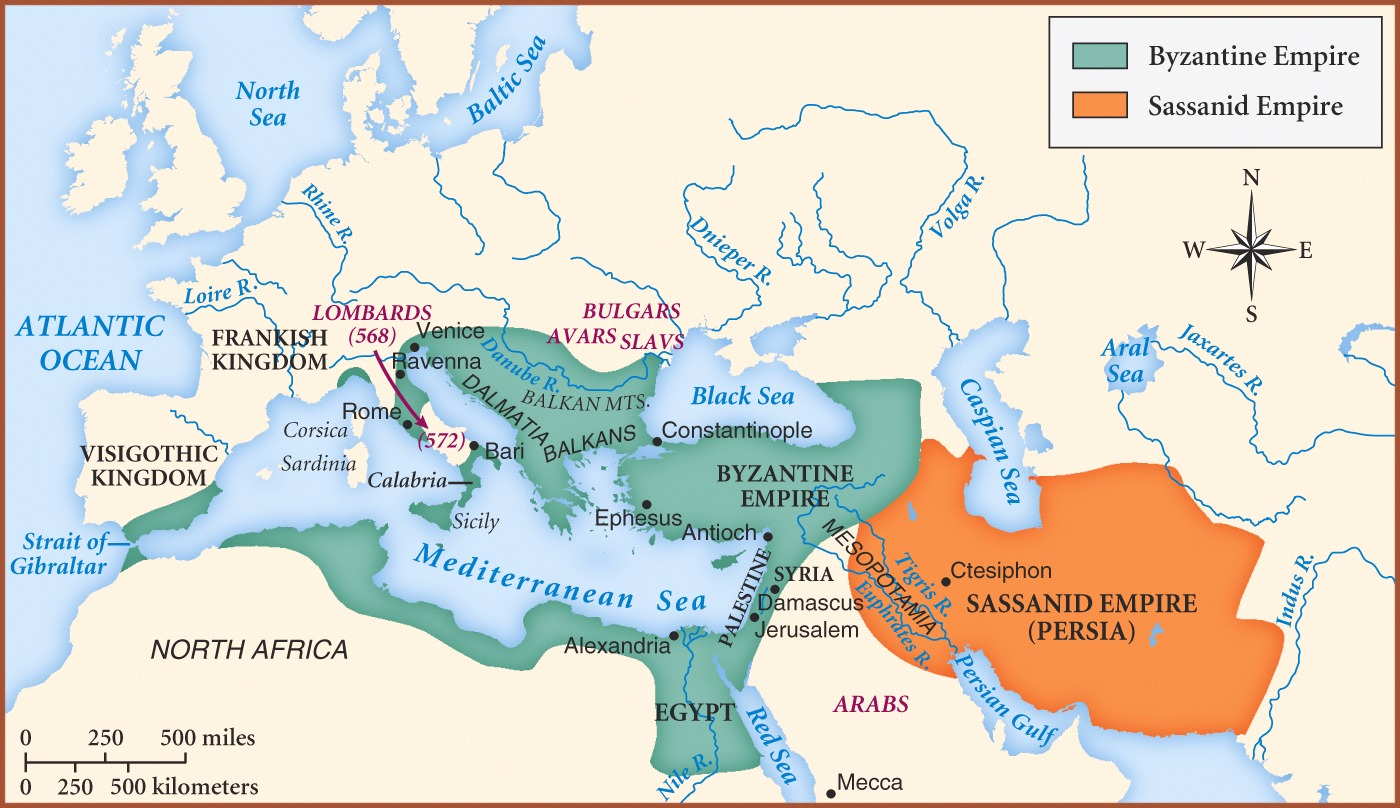The first Slavic people to fall under Byzantine influence were the Bulgarians. From the time these barbarians crossed the Danube in the late seventh century, they engaged in intermittent warfare against the Byzantine Empire. At the same time, a Slavic people called the Moravians had established a state of their own. Their rulers associated Christianity with their powerful neighbors, the Germans, and feared both German and papal encroachment. To avoid German or papal influence, the king of the Moravians in 862 sent to Byzantium and asked for a Greek missionary to teach the Moravian people Christianity.
The Byzantine emperor Michael III sent to Moravia two missionaries, Cyril and his brother Methodius, called the Apostles to the Slays. They knew Slavic and invented an alphabet in which it could be written. That alphabet, still employed by the Russians, the Bulgarians, and the Serbs, is still called Cyrillic after its inventor. As a counter-move, Boris, ruler of the Bulgarians, asked for Christianity from the Germans. But these efforts by the two Slavic rulers to avoid conversion at the hands of their powerful neighbors failed. The German clergy and Roman Christianity eventually triumphed in Moravia.
Similarly, the power of nearby Byzantium was too strong. Boris found that he could not obtain a church independent from the papacy. Only in the fold of the Eastern church could Boris unify his country and consolidate his own autocratic power. In Bulgaria, then, from the late ninth century on, the language of the church was the native Slavonic tongue preached by followers of Cyril and Methodius.
But the ambitions of the Bulgarian rulers were ultimately too great to permit friendly relations with Byzantium. Under Simeon (r. 893-927), second son of Boris, there began a bitter hundred years’ war. In 981 the Bulgarian ruler Samuel defeated Basil II. But in 1014 Basil captured fourteen thousand Bulgarian prisoners and savagely blinded ninety-nine out of every hundred; the hundredth man was allowed to keep the sight of one eye, so that he could lead his comrades home.
Basil II took the appropriate name of “Bulgar slayer,” and shortly afterward Byzantine domination over Bulgaria became complete. The country was ruled as a conquered province. But its inhabitants were never deprived of their own church, whose archbishop had as much jurisdiction as in the days of Bulgarian independence.
The great expenditures of money and manpower incurred in the long pursuit of the Bulgarian war played their part in weakening Byzantium for the military disasters that were to come at Manzikert and at Bari in 1071. But the war helped to determine where the line between East and West would be drawn for future history.
The Bulgarians are an Orthodox people to this day, and their civilization throughout the Middle Ages directly reflected the overpowering influence of Byzantium. In much the same way, more than three hundred years later, the western neighbors of the Bulgarians, the Serbs, also took their faith from the Greek East after a flirtation with the Latin West.

